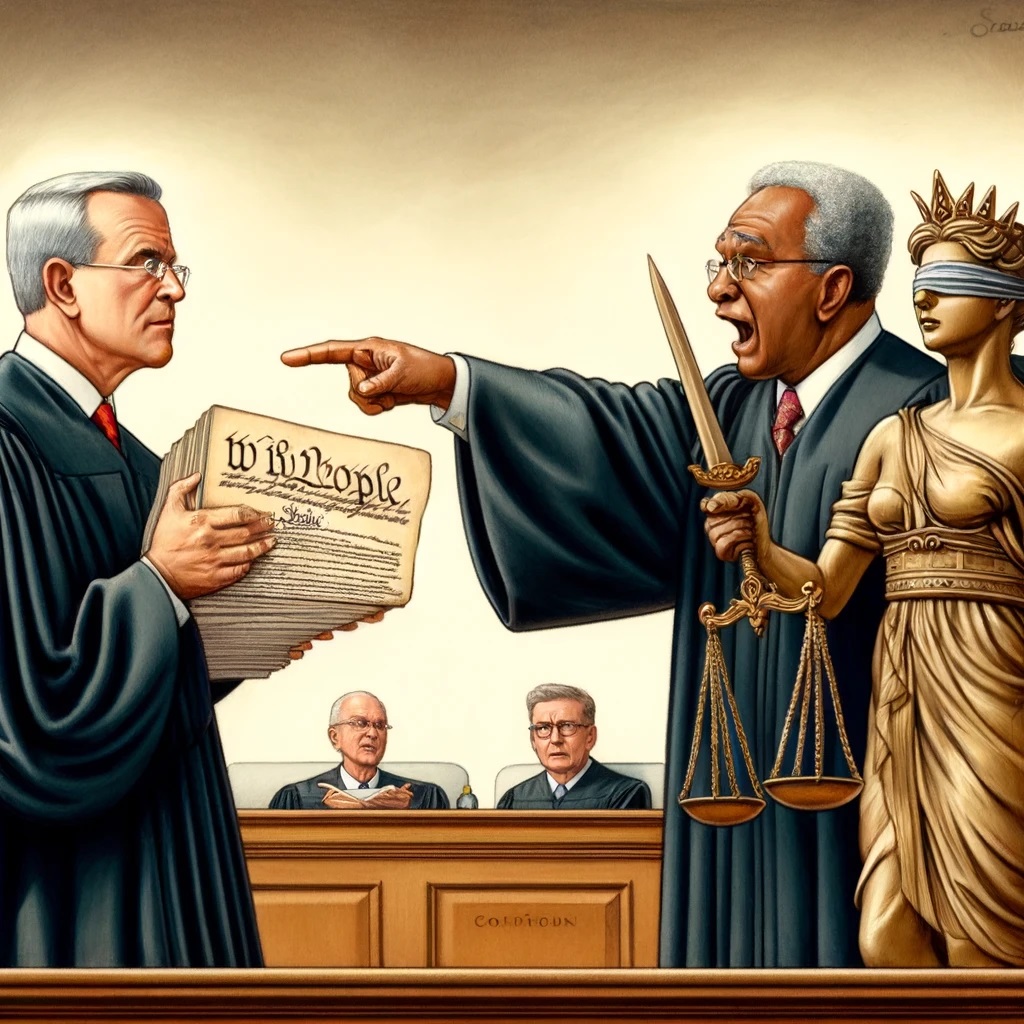
A divided panel in People v. Uriostegui (D2d6 Apr. 5, 2024 No. B325200) ___ Cal.App.5th ___, a residential burglary case, reversed a guilty verdict. Because of lack of evidence of guilt? No, the prosecution’s evidence was overwhelming. Instead, the majority reversed because, after the prosecution made a peremptory challenge to a Hispanic prospective juror, and after the defense objected that the challenge was based on implicit bias, the trial judge erred by overruling the objection.
But wait just a minute. The prosecution’s ruling was not actually biased. In fact, the majority went out of its way to note that it was not finding that the prosecutor was motivated by bias. And there was no suggestion that, had the challenged juror been on the jury, the result would have been different. To the contrary, as Presiding Justice Gilbert notes in dissent, the facts in the record “show overwhelming evidence of guilt.”
So why did the majority reverse? Because the Racial Justice Act, and specifically Code of Civil Procedure section 231.7, requires reversal when a juror who is a member of a protected class is excused without express findings that the reasons for the excusal “bear on the prospective juror’s ability to be fair and impartial.” Lacking that express finding here, the majority concluded it was reversible error to deny the defendant’s objection.
The prosecution explained that it exercised its peremptory challenge because the juror was not currently working, had no military experience, had no children, seemed young and immature, easily swayed by others, and generally had a lack of life experience. The defense argued this was all a pretext, and that the challenge was motivated instead by the fact that the juror had what appeared to be a Spanish surname.
The majority reasoned that, to overrule the objection, the trial judge must make a finding that the prosecution’s asserted reasons for the challenge must bear on the juror’s “ability to be fair and impartial in the case.” (§ 231.7(f).) The trial court did not make this express finding, and that required per se reversal because it is “imperative that trial courts heed section 231.7’s new mandates to root out discriminatory uses of peremptory challenges.”
Dissenting, Presiding Justice Gilbert began by agreeing with the purpose of the Racial Justice Act. But he then explained that the trial judge did find that the prosecution’s challenge was not for an invalid reason. Instead, the majority was reversing because the trial court did not deploy “the talismanic phrase ‘I find by clear and convincing evidence the reasons of the prosecutor for the peremptory challenge bear on the prospective juror’s ability to be fair and impartial in this case.’” This, PJ Gilbert said, “is taking literalism into the realm of the absurd.”
Besides, PJ Gilbert goes on, there is a “cogent argument raised by Justice Yegan in his dissent in [People v. Simmons (2023) 96 Cal.App.5th 323—dissenting to PJ Gilbert’s majority opinion!] that the Racial Justice Act violations the doctrine of separation of powers.” Specifically, these two jurists refer to the fact that the California Constitution, article VI, § 13, require a showing of a “miscarriage of justice” before a judgment may be reversed. Absent a structural error—such as a showing of actual bias, not present here—the mere failure to make a finding, even a finding required by statute, cannot support reversal alone. (F.P. v. Monier (2017) 3 Cal.5th 1099 [failure to make required findings in a statement of decision does not support reversal absent a showing of prejudice].)
When Justice Yegan referred to a separation-of-powers violation, he was addressing the fact that the Legislature declared in the racial Justice Act that the use of racially discriminatory language in a criminal trial constitutes a miscarriage of justice. (Simmons, at p. 340.) But Justice Yegan reasoned that what constitutes a miscarriage of justice under the constitution must be independently determined by the judiciary—the question may not be usurped by another branch of government. Absent a judicial finding that a particular violation of the Racial Justice Act resulted in a miscarriage of justice—and none was made in either Simmons or Oriostegui—the judgment must be affirmed, even despite violations of the Act.
Quoting Marbury v. Madison, Justice Yegan ended his Simmons dissent thus: “The Legislature cannot dismantle California's separation of powers doctrine by dictating to the judiciary how the California Constitution should be construed.”
The dissents in both cases were correct. The Racial Justice Act is an unconstitutional separation of powers to the extent the legislature purports to dictate to the judiciary the content of the Constitutional.
I suspect the result will not advance the ends of the Racial Justice Act: instead of exercising genuine discretion and articulating thoughtful reasons—which may be picked apart as the defendant did here—trial judges may simply overrule objections by reciting what Presiding Justice Gilbert calls the “talismanic phrase.” As the dissent concludes, “It escapes me how this statute succeeds in what it seeks to prevent.”
The Attorney General did not disagree with the outcome in Simmons, and did not file a petition for review. But watch for a petition for review in this one.